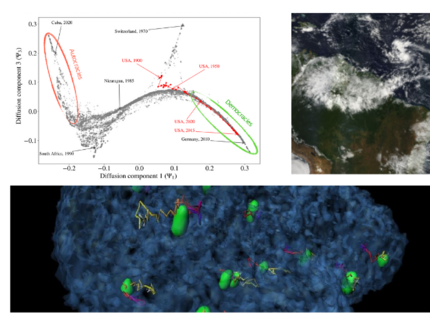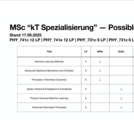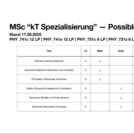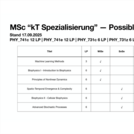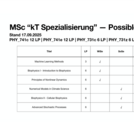Dynamical Systems Across Scales: Complexity, Climate & Life
About the Specialisation
This specialisation within the Physics Master's programme offers a cutting-edge education at the interface of statistical physics, complexity science, climate systems, and living matter. Designed for students eager to explore how fundamental physical principles govern complex phenomena across nature and society, the curriculum combines rigorous theoretical training with hands-on experimental, computational and data-driven methods. From understanding the nonlinear dynamics of motile cells, neural networks and ecosystems to modeling global climate and emergent behavior in complex social systems, students gain the tools to tackle some of the most pressing scientific and societal challenges of our time. Set in a vibrant research environment with strong international links, the programme prepares graduates for careers in research, industry, and beyond.
Courses
The MSc in physics consists of the mandatory modules ‘Höhere Experimentalphysik’, ‘Höhere Theoretische Physik’, and ‘Numerische und Experimentelle Projekte’ (30 LP or Credit Points, taught in German), elective modules (30 LP), and a research project (60 LP). The specialisation ‘Dynamical Systems Across Scales: Complexity, Climate & Life’ offers courses within the elective modules. If you choose your 30 LP exclusively from these courses, you will obtain an official letter together with your MSc degree, stating that you completed the specialisation ‘Dynamical Systems Across Scales: Complexity, Climate & Life’ within the MSc in Physics.
Winter Term
Advanced Statistical Mechanics & Criticality
Biophysics I - Introduction to Biophysics
Machine Learning Methods
Non-Equilibrium Statistical Physics
Principles of Nonlinear Dynamics
Summer Term
Advanced Stochastic Processes
Biophysics II - Cellular Biophysics
Numerical Models in Climate Science
Physics-Informed Machine Learning
Spatio-Temporal Emergence & Complexity
To obtain the required 30 LP within the elective modules, observe the following general rules:
• You need to choose at least 18 LP from modules PHY_731 and PHY_741 (of which at least one module within PHY_741).
• The remaining LP can be chosen according to the programme rules
To help you select your courses, see the suggested study plans below.

